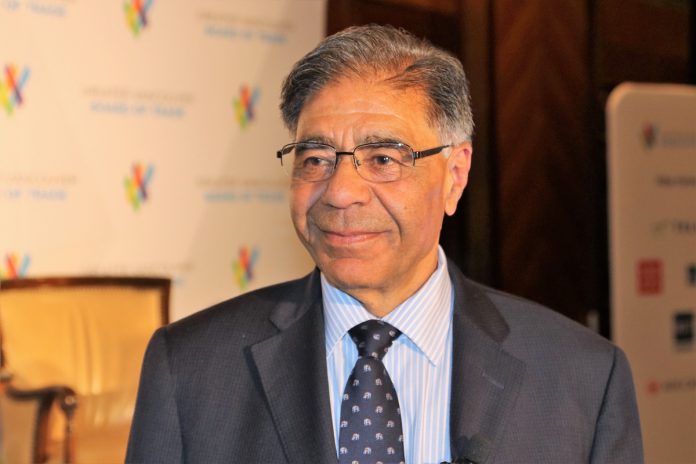METRO Vancouver says that its leadership and commitment to climate change have allowed the regional district to achieve corporate carbon neutrality for 2019 and potentially through 2022. This puts the region in a strong position to advance important climate actions as part of Climate 2050 and achieve its ambitious climate change and environmental goals.
“We are pleased to join the ranks of forward-thinking global climate leaders with this significant milestone,” said Sav Dhaliwal, Chair of the Metro Vancouver Board of Directors, on Monday. “Metro Vancouver’s carbon neutrality is thanks to tangible initiatives whose benefits resonate throughout our communities. Today, we call on the region’s businesses, institutions and residents to accelerate their own actions to reduce greenhouse gas emissions.”
“It’s so great to see Metro Vancouver reach carbon neutrality in their 2019 operations,” said Jonathan Wilkinson, federal Minister of Environment and Climate Change. “Local governments play an essential role in the fight against climate change and it’s leadership like this that will help Canada exceed our Paris Agreement targets and achieve net-zero emissions by 2050.”
Metro Vancouver’s carbon neutrality is attributable to projects such as:
Ecological restoration of Burns Bog, which sequesters large amounts of carbon, and improves the ecology of North America’s largest urban bog, affectionately known as “The Lungs of the Lower Mainland.”
Parkland acquisitions at Widgeon Marsh in Coquitlam and Codd Wetland in Pitt Meadows, which sequester carbon, protect ecosystems and help people connect with nature.
Trenchless tunnel construction methods for major liquid waste infrastructure projects, which cut down on heavy trucking and cause fewer community disruptions.
Installation of energy-efficient boilers and appliances in Metro Vancouver Housing sites, to reduce emissions, save on operating expenses and help deliver more affordable housing.
Increasing the share of electric and hybrid vehicles in Metro Vancouver’s vehicle fleet, which reduces emissions and contributes to cleaner air.
“Local governments have been taking action on climate change for nearly 20 years, and many have declared climate emergencies and signed the provincial Climate Action Charter, committing to pursue carbon neutrality,” said Adriane Carr, Chair of the Metro Vancouver Climate Action Committee. “Through Climate 2050, Metro Vancouver aims to ensure regional infrastructure, ecosystems, and communities are resilient to the impacts of climate change and has set a commitment to becoming a carbon-neutral region by 2050.”
“Metro Vancouver’s climate leadership is built on collaboration and action,” said George Heyman, Minister of Environment and Climate Change Strategy. “Climate 2050 aligns fully with CleanBC and the actions underway to strengthen communities, support business opportunity and reduce pollution. We are working with all levels of government, Indigenous nations and partners on a series of initiatives to deliver on the ground benefits to all the residents of Metro Vancouver. In turn, leadership actions like these support our provincial efforts to meet our commitments to take meaningful action on climate change.”
“Metro Vancouver and the City of Delta have worked on extensive restoration efforts at Burns Bog,” said John McEwen, Chair of the Metro Vancouver Regional Parks Committee. “These efforts have significantly enhanced the Bog’s ability to sequester, or remove, carbon from the atmosphere, playing an important role in achieving Metro Vancouver’s climate change objectives. We are committed to securing and protecting the region’s sensitive ecosystems and expanding our network of Regional Parks.”
Regional greenhouse gas emissions come from everyday activities, with large contributions from transportation-related and building heating sources. Climate change and air quality are strongly linked, since many major sources of greenhouse gases in the region are also major sources of health-harming air contaminants.
Metro Vancouver has implemented innovative actions in order to reach carbon neutrality as an organization, and is seeking feedback on innovative and transformative “big ideas” that are needed at the regional level to extend that achievement and reach the targets of a climate neutral, resilient region by 2050.
Implementation of Climate 2050 is underway and is structured around 10 different issue areas, each with its own roadmap for climate action. Public and stakeholder engagement is currently ongoing on the individual roadmaps and the Clean Air Plan, which will be the next iteration of Metro Vancouver’s plan to manage air quality and greenhouse gases in the region.









